If You Have an Irritated Scalp, These Products Are Sure to Help
Looking after the skin on our faces and bodies is all too easy. In fact, there’s something quite enjoyable about taking the time out of a busy day and dedicating a few minutes to a thorough full-body skincare regimen. However, there is one very important thing that' s frequently forgotten, and failing to give it the necessary attention can lead to all sorts of issues.
That’s right. Neglecting to give your scalp the same level of care as you do the rest of your skin is likely to upset it. To put it bluntly, if your scalp is flaky, sensitive and irritated, it could be because you’re not treating it right. According to experts, we can experience a whole array of skin issues on our scalps, and while some more severe cases do usually require medical advice, if you have suddenly found that your scalp is acting up, there are some things you can do to help the situation.
Keep scrolling to read all there is to know about scalp irritation and to shop the most soothing products.
The Signs

First of all, it’s important to understand when your scalp is crying out for help, and when it’s just having a bad day. Trichologist at Percy & Reed Nicola Smart explains, "Scalps that are constantly itching or flaking excessively may require a closer look. Often, people experience scalp irritations for many years but come to accept it as their norm and therefore never seek professional advice. Even a visit to your GP might uncover an underlying problem that you are unaware of."
So how are you supposed to know exactly what defines everyday irritation and serious health issue? Anabel Kingsley, Philip Kingsley brand president and consultant trichologist, advises that it may be time to get to know your scalp a little better. "More serious scalp conditions, such as psoriasis, as well as allergies, can cause discomfort. They need further investigation, so talk to a dermatologist or trichologist if you are concerned. A few ‘red flags’ to look out for are heavy scaling, bleeding, inflammation and pronounced redness,” says Kingsley.
The Causes

As with any other skin issue, before you attempt to tackle it, it’s important to understand exactly what’s causing the problem. "Your scalp contains sweat and sebaceous (oil) glands, and it is constantly replacing old skin cells with new ones. Your scalp is also exposed to the same environmental pollutants as the skin on your face,” advises Kingsley.
Besides hormonal shifts and stress (both of which can seriously upset the oil production and general well-being of your scalp), there are other daily choices that can cause issues. "Infrequent shampooing can contribute to scalp problems as it leaves excess oils sitting on your scalp. Certain yeasts (called the Malassezia yeasts) thrive in an oily environment, and when these yeasts overgrow, your scalp can become flaky and irritated. Itching can also occur when you aren’t shampooing often enough,” warns Kingsley.
Similarly to the rest of the skin, Kingsley also advises that the scalp is heavily impacted by what we put into our bodies just as much as what we put on it. "Similar foods that affect the skin on your face can impact your scalp. For instance, full-fat dairy products, like cheese, as well as very sugary and spicy foods, can flare up a problematic scalp.”
The Changes
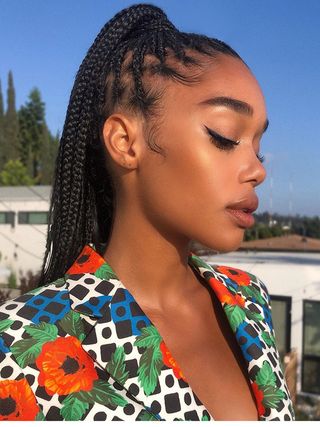
Once you’ve got to grips with the reason your scalp is acting up, it’s officially time to start switching things up. Whether you’re already experiencing the symptoms of an irritated scalp or are trying to get on top of it before a situation takes hold, the products you use (and how you use them), can make a world of difference.
We’ll deliver the bad news first. You know all of those sweet-smelling shampoos and conditioners you can’t get enough of? It’s time to ditch them. "Generally speaking, if you have an irritated scalp, you should try to avoid products that are heavily perfumed. Fragrances often comprise many ingredients that are difficult to pinpoint but can exacerbate,” says Smart.
So besides ditching fragrance, what else should we be doing? Kingsley advises shampooing daily and adding in a soothing scalp toner to your product line-up. "Daily shampooing is an absolute must if you have a scalp condition, such as dandruff or seborrheic eczema. Leaving your hair for any more than three days between shampooing is likely to cause itching and flaking. Great anti-itch ingredients to look for are sodium salicylate, witch hazel and camphor,” she says.
Shop the Best Products for an Irritated Scalp
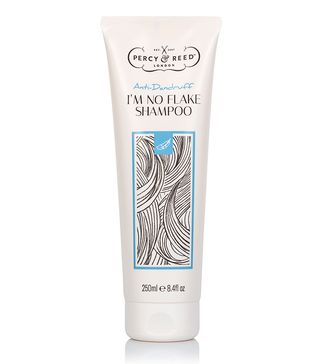
While some anti-dandruff shampoos can leave hair looking limp and heavy, this particular formula is so lightweight that not only does it keep flakiness in check, but it also leaves strands voluminous and bouncy too.
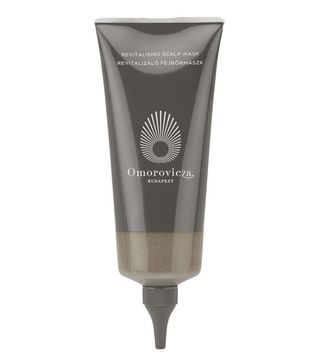
Before you shampoo your hair, massage this into the scalp and leave for 20 minutes to detoxify, soothe and exfoliate all at once. It's a total scalp hero.
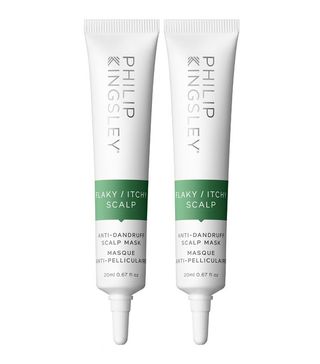
If you're suffering with both itching and flaking, this mask is just about the best thing you could possibly invest in. Formulated with anti-fungal piroctone olamine, exfoliating salicylic acid and antioxidant-rich green tea extract, it soothes, protects and rids the scalp of dandruff all at once.
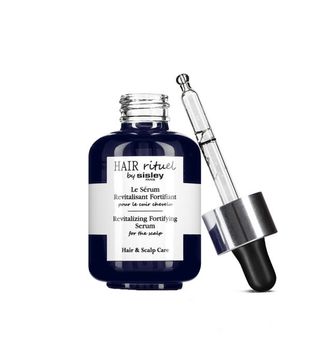
We know, £135 is an obscene amount of money to spend on a hair serum, but hear us out. This clever formula by Sisley contains super–highly concentrated plant extracts and proteins that not only nourish strands but most importantly make for the perfect serum to carry out a soothing massage. You can't knock it till you've tried it.
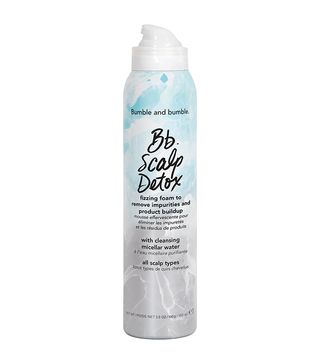
Slightly different to other scalp treatments, this particular product comes as a frothy foam that promises to rid the scalp of irritating, excess oils.
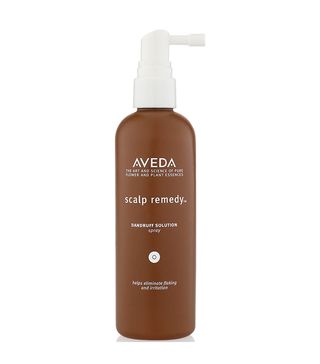
The real hero ingredient in this scalp solution is gently exfoliating salicylic acid. Not only does it soothe and nourish a dehydrated, stressed-out scalp, but it also prevents further dead-skin buildup too.
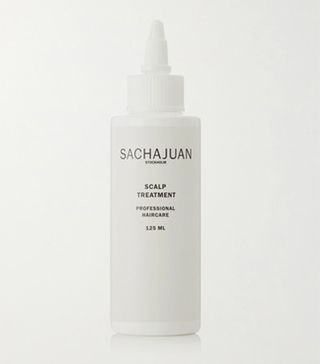
Apply this effective treatment directly to the scalp, massage in and let a blend of salicylic acid, ginger extract and menthol get to work at soothing and exfoliating.
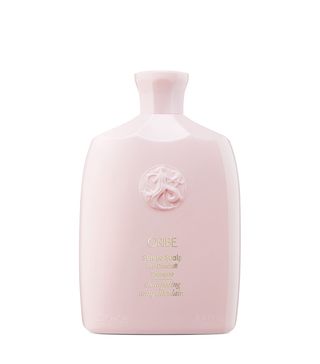
No one does haircare quite like Oribe. This particular shampoo not only looks incredibly pretty on the bathroom shelf, but it also soothes an irritated, dandruff-prone scalp without having to compromise on the condition of your hair.
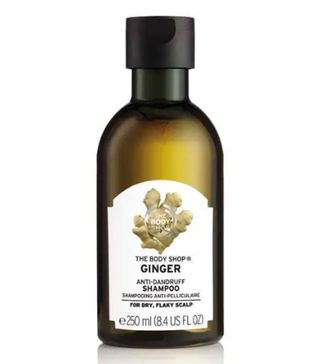
With ginger essential oil, this zingy shampoo really works to get rid of dead skin and flakes while invigorating the scalp.
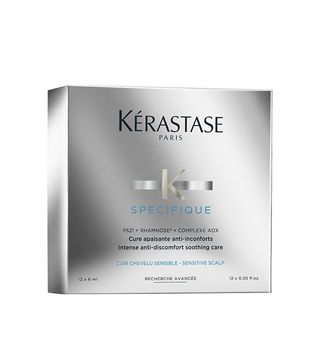
If your scalp is in dire straits, why not consider a course of treatments? This pack contains four weeks' worth of leave-in treatments that promise to ease discomfort and protect from further distress.
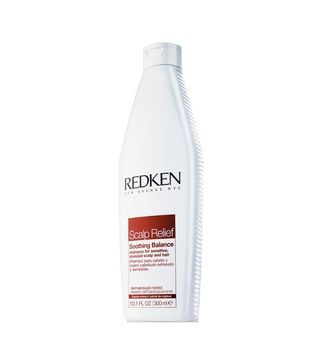
When you have a sensitive scalp, the prospect of having to wash your hair can be daunting. But as mentioned previously, it's imperative you keep up with regular shampooing. Luckily, this relieving shampoo contains eucalyptus and licorice extracts that instantly soothe the skin.
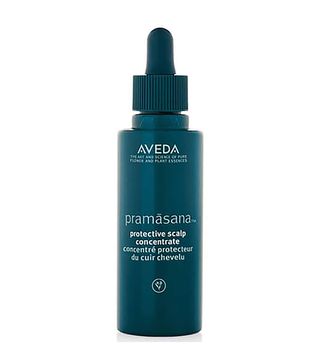
Apply this concentrate straight from the pipette onto a damp scalp and massage in. While it does offer some nourishment, more impressively it uses seaweed extract to help balance sebum levels.
Next up, if you're struggling to style your short hair, these products will make things easier.
Shannon Lawlor is a renowned beauty journalist and has contributed to Who What Wear’s beauty content since 2020. As a leading beauty editor, expert and brand consultant, she has over eight years of experience working for some of the industry’s most esteemed titles, including Who What Wear (of course), Glamour UK, Stylist, Refinery29 and Fabulous. Having also worked behind the scenes with some of the industry’s biggest brands and retailers, Shannon has a unique insight into what people really want from their beauty routines. Understanding that beauty lovers seek honest, open and responsible advice, she has it made her mission to demystify the intimidating world of beauty, taking a no-frills approach to the most relatable topics. While Shannon is the first to admit she doesn’t hold the answer to every beauty question out there, she is dedicated to sharing her expert insights in a bid to help. As a self-proclaimed lazy girl, Shannon has an affinity for easy-to-use, foolproof beauty products and has made it her mission to scope out the best of the best. When she’s not working, Shannon is likely soaking in the bath or giving no-holds-barred beauty reviews on Instagram from her bathroom floor.
-
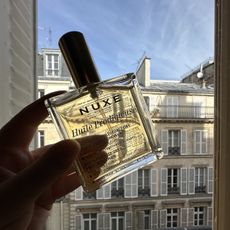 17 Iconic French Pharmacy Products I Picked Up During a Week in Paris
17 Iconic French Pharmacy Products I Picked Up During a Week in ParisI was determined to fit them in my suitcase.
By Kaitlyn McLintock
-
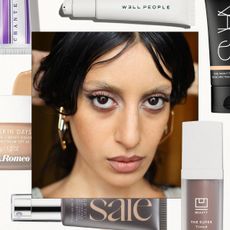 These Undetectable Tinted Moisturizers Actually Meet Our Super-High Standards
These Undetectable Tinted Moisturizers Actually Meet Our Super-High StandardsThey won't let you down.
By Maya Thomas
-
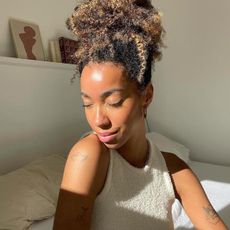 Yes, Algae Can Soothe Sensitive Skin, But It Also Prevents Skin Damage and Aging
Yes, Algae Can Soothe Sensitive Skin, But It Also Prevents Skin Damage and AgingIt's a true multitasker.
By Kaitlyn McLintock
-
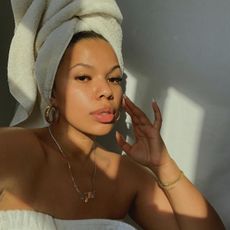 Exosomes Are the Trending Ingredient That Can Take 5 Years Off Your Skin
Exosomes Are the Trending Ingredient That Can Take 5 Years Off Your SkinHere's what we found out.
By Kaitlyn McLintock
-
 This Unexpected Item Hydrated My Skin Overnight (It's Not a Skincare Product)
This Unexpected Item Hydrated My Skin Overnight (It's Not a Skincare Product)It gives a whole new meaning to beauty sleep.
By Kaitlyn McLintock
-
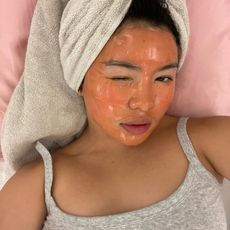 7 Key Skincare Trends That Experts Predict Will Be Huge This Year
7 Key Skincare Trends That Experts Predict Will Be Huge This YearTake notes.
By Grace Day
-
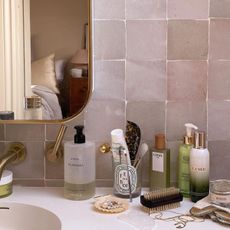 Experts Love This Prototype Evening Skincare Routine for All Ages and Skin Types
Experts Love This Prototype Evening Skincare Routine for All Ages and Skin TypesThe secret's out.
By Maya Thomas
-
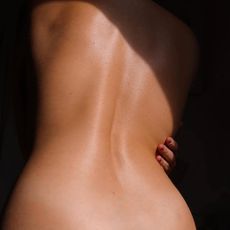 I'm Redoing My Bodycare Routine for Winter—Here's What I'm Replacing
I'm Redoing My Bodycare Routine for Winter—Here's What I'm ReplacingThese smart swaps will make your winter transition seamless.
By Katie Berohn

